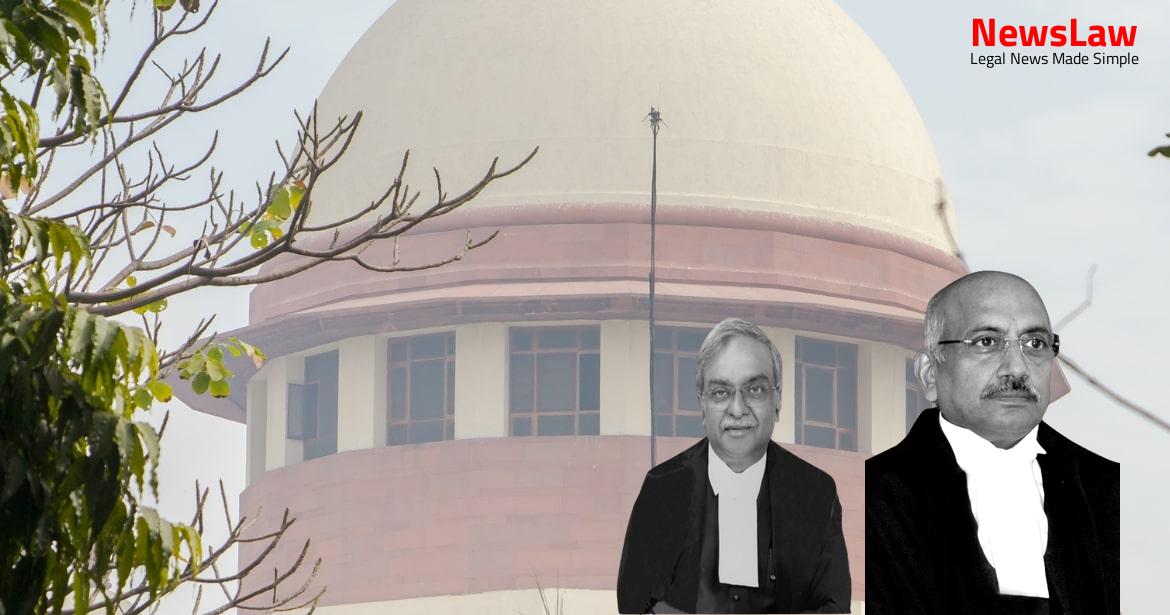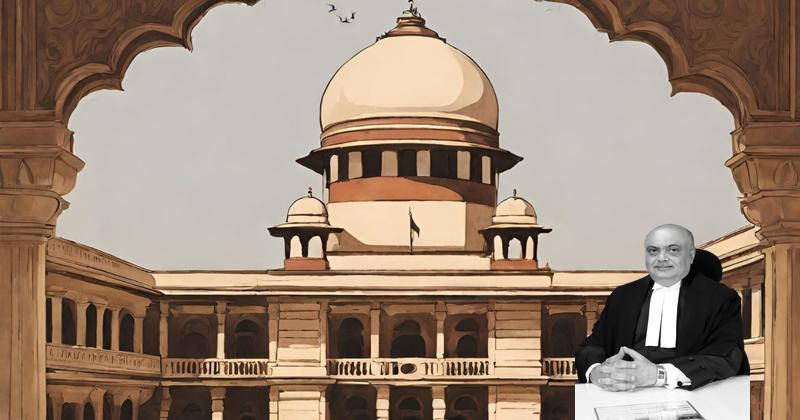Delve into the depth of legal analysis regarding the jurisdiction of the National Green Tribunal in cases concerning Environmental Clearance. This summary highlights the court’s interpretation of the EIA notification and its subsequent amendments, shedding light on the complexities of ensuring compliance with environmental regulations.
Facts
- The Project Proponent applied for Consent to Establish Cold Rolled Coils of stainless steel on 20.1.2018.
- Permission to operate the unit was granted on 6.2.2020.
- The Project Proponent has invested Rs.1100 crores for infrastructure development.
- The Project Proponent had a turnover of approximately Rs.743 crores and paid Rs.286.17 crores as Goods and Services Tax till the Financial Year 2020-21.
- The Project Proponent earned US Dollars 15.52 million foreign exchange for the country.
- An application was filed before the Tribunal on 20.7.2019 alleging violation of EIA notification dated 14.9.2006.
- The EIA notification categorizes the project under secondary metallurgical industry requiring prior environmental clearance.
- The Expert Appraisal Committee recommended a one-year grace period for industries established after CTE/CTO.
- The Ministry accepted the recommendation and filed an affidavit.
- The applicant challenged the time granted by the Tribunal, arguing that the Tribunal had no jurisdiction to grant a period for obtaining Environmental Clearance.
- The Ministry filed an affidavit stating that the industry requires environmental clearance and sought time to file an additional response.
- A Group of Experts was appointed on the issue by the Ministry.
- The Project Proponent challenged the findings of the Tribunal that Environmental Clearance is required and filed an application for modification, leading to the vacation of the stay.
- The Tribunal passed an order providing a one-year period for units operating on CTE/CTO to fall within the EC regime.
- During the appeal, the Project Proponent received a closure notice from the Gujarat State Pollution Control Board and the unit was closed.
Also Read: Landmark Judgment on Compensation for Fatal Accident
Arguments
- Argument by the petitioner that prior Environmental Clearance is mandatory.
- Reference to judgments such as Common Cause v. Union of India & Ors., Hanuman Laxman Aroskar v. Union of India, and Alembic Pharmaceuticals Limited v. Rohit Prajapati & Ors.
- Establishment of units without prior Environmental Clearance noted.
- Jurisdiction of the Tribunal under Section 21 of the NGT Act to set aside Environmental Clearance discussed.
- The Ministry may consider amending schedule 3(a) of the EIA notification for clarity.
- An amendment was published on 20.7.2022 based on a report.
- Citing precedent cases, Mr. Divan argued for the Tribunal’s jurisdiction under the NGT Act.
- An order in the case of Pahwa Plastics Pvt. Ltd. v. Dastak NGO & Ors. highlighted the issue of Environmental Clearance for manufacturing units.
- The Tribunal’s decision, following EAC recommendations, allowed a year for industry compliance with the EIA notification of 14.9.2006.
- Ambiguity in the EIA notification led to 1689 units operating in the country under CTE and CTO regime.
- The entire country had interpreted that Re-Rolling Steel Plants did not need prior Environmental Clearance until the notification was amended on 20.7.2022.
Also Read: Land Acquisition Compensation Legal Analysis
Analysis
- The Tribunal’s direction in the case discussed falls outside the scope of its powers under Section 21 of the NGT Act.
- The Ministry acknowledged ambiguity in the EIA notification of 2006, which was subsequently amended on 20.7.2022 to remove the ambiguity.
- The judgment in Alembic Pharmaceuticals Limited related to the validity of a circular dated 14.5.2002.
- The judgment in Common Cause did not support arguments regarding illegal mining within the leased area for mining.
- Ex-post Environmental Clearance should not be granted as a norm but cannot be declined without considering the impact of stopping operations.
- The order of closure of establishments lacking Environmental Clearance was set aside by the Court, taking into account the economic contribution and livelihood factor of the units.
- The commitment to sustainable development was emphasized in the Court’s decision.
- An establishment was set up pursuant to CTE and CTO from the concerned statutory authority.
- The establishment applied for ex-post facto Environmental Clearance.
- Illegal mining includes excess extraction of a mineral over the permissible limit even within the mining lease area under the Mines and Minerals (Development and Regulation) Act, 1957.
- The EIA notification of the year 2006 shows increasing awareness of environmental complexities and the need for heightened scrutiny to ensure sustainable development for present and future generations.
- The unit has time to seek Environmental Clearance following the amendment in the EIA notification dated 20.7.2022.
- The unit has been closed since then, leading to immense losses for both the Project Proponent and the country.
- The Project Proponent was served a closure notice by the Gujarat State Pollution Control Board on 25.6.2021.
- Out of 1689 units in the country, the applicant chose to target the Project Proponent, even though other Cold Steel Rolling Mills were operating under the same regime.
Also Read: Legal Analysis in Land Allotment Case
Decision
- Civil Appeal No 3116 of 2020 dismissed
- Civil Appeal No 3576 of 2020 disposed of
- I.A. No 81563 of 2021 allowed, closure notice quashed
Case Title: GAJUBHA JADEJA JESAR Vs. UNION OF INDIA (2022 INSC 812)
Case Number: C.A. No.-003116 / 2020



